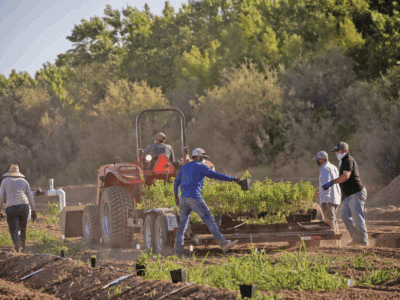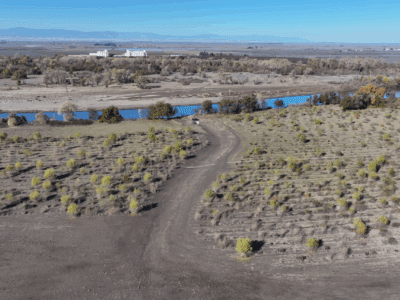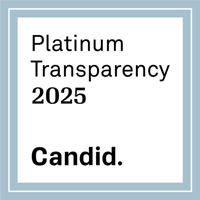At River Partners, we believe all people deserve the benefits that healthy rivers provide. To ensure that both people and the environment benefit from revitalized riverways, we are deepening our understanding of how we can advance Equity, Diversity, and Inclusion (EDI) in our work for years into the future.
Our staff is diverse and multi-cultural, comprised of agricultural laborers and production growers, ecologists and accountants. Our restoration practices do not require speaking English, so that we can readily engage local communities in our projects. We host paid internships every summer to provide an open door to students and field technicians, and we invest in growing the workforce development programs of our partners to broaden our impact.

Despite our focus on diversity and inclusivity in our workforce, we lack diversity in our leadership teams. Welcoming more perspectives into our leadership would help us find new solutions to all kinds of issues we’ve been confronting for years: staff enrichment and retention, pay equity, long-term stewardship of river preserves, building alignment between the science and practice of restoration, and deepening our contributions to neighboring communities.
Our first steps have included participating in a training cohort led by the Center for Diversity and the Environment (CDE) that was open to members of the Water Solutions Network (WSN) and funded by the S.D. Bechtel Jr. Foundation. We asked our colleague Marselle Alexander-Ozinskas, Senior Program Officer at the S.D. Bechtel Jr. Foundation to interview our Conservation Director, John Cain about River Partners’ path ahead.

Marselle: The S. D. Bechtel, Jr. Foundation—which has invested all of its assets and will close its doors at the end of 2020—recognizes that a desegregated environmental movement that better reflects and represents all Californians will summon greater resources and source innovative ideas and approaches to make its work more effective. It is exciting to have River Partners participate in this training for members of the Water Solutions Network. How is River Partners approaching EDI work?
John: I have always been very focused on efficiency and was attracted to River Partners because of their track record of getting projects implemented. The EDI training forced me to reconsider the value of efficiency relative to basic human values like inclusion and equity. Any parent can attest to the fact that very young children have an intrinsic sense of what is fair, of what is equitable. And anyone who has been to kindergarten knows that excluding other children from your play group is hurtful and wrong. Efficiency at the expense of inclusiveness and equity may be quick, but it is not right. Is it effective over the long-term to value efficiency over all else? How can we be both “efficient” and inclusive?
Marselle: From your perspective, how will your focus on EDI contribute to better solutions for healthy rivers andhealthy partnerships?
John: All three words—Equity, Diversity and Inclusion —are inextricably linked. How can we be inclusive if we are not open to diverse opinions? Equity is a very interesting word. Many people focus on its definition relating to fairness, but in the context of River Partners’ work, I am drawn to the definition relating to ownership.
Equity literally means having a share of the ownership, and when people feel like they own something, they are far more likely to take care of it. If we want our projects to be durable, then we really need to focus on making sure that nearby communities have an ownership stake in healthy rivers.
One tangible next step is to focus more completely on including local voices in the formulation of river restoration projects. This will require a deeper upfront investment to consider the diversity of opinions within a community, but the end result will be far more durable than if we proceed quickly and efficiently. Our development staff are moving away from “Project Development” and towards “Partnership Development” to support this approach, but we will need assistance to do it well.

Marselle: The mainstream environmental sector is increasingly understanding that EDI is not just a moral responsibility but something that is critical to the underlying effectiveness of any organization. Do you agree? What is River Partners’ vision of success in one year, ten years, etc.? What support will you need to get there?
John: YES. The biggest lesson I’ve taken from my training so far is the power of EDI to create more effective institutions where every member feels like they have a stake in the organizations’ success. River Partners not only has a moral obligation to properly steward rivers and waters as public resources, but it is also in our self-interest to ensure that the public’s investment in river restoration is durable and will withstand inevitable pressures in the future.
Our vision of success will evolve as we learn through internal change, but today, excellent outcomes might include: lower staff attrition/greater promotion from within; green industry sector growing more diverse and inclusive; more grant dollars from state-wide programs being delivered to local parks departments, public works departments, local businesses that support river restoration, and education programs; and a lot more restoration work would be happening on the ground in our most imperiled watersheds and communities—especially along the San Joaquin River.
This is an “all hands” situation and we will need more than anything support and flexibility from our funders and project partners, and honest feedback on all of our work as we realign and improve.








